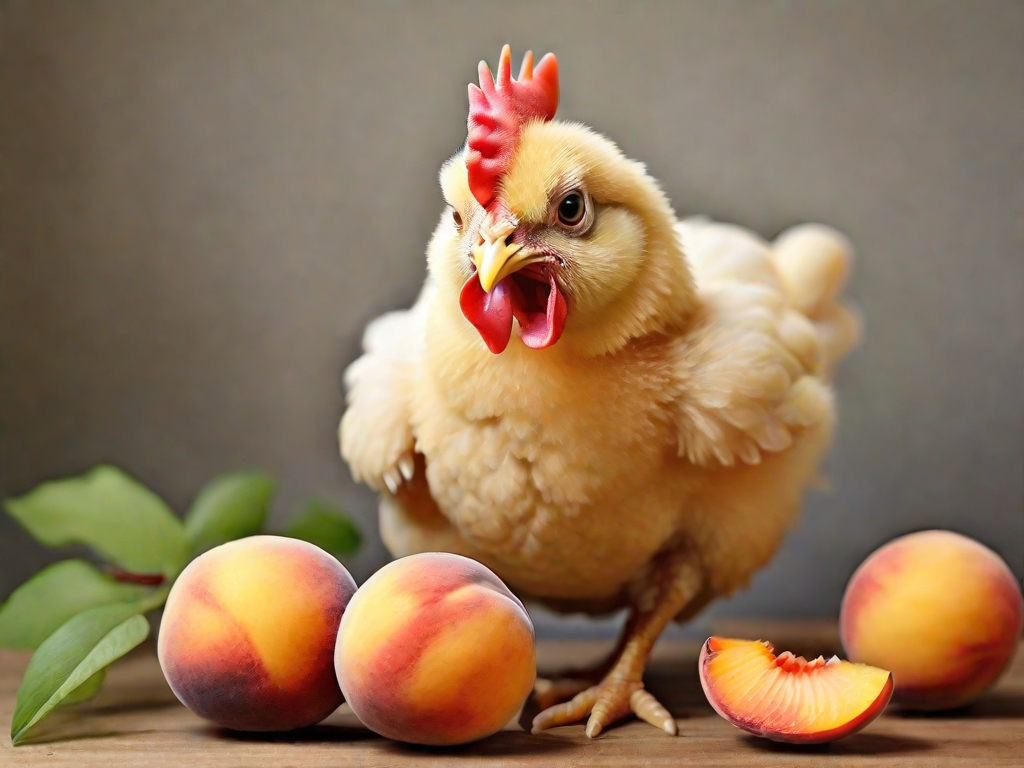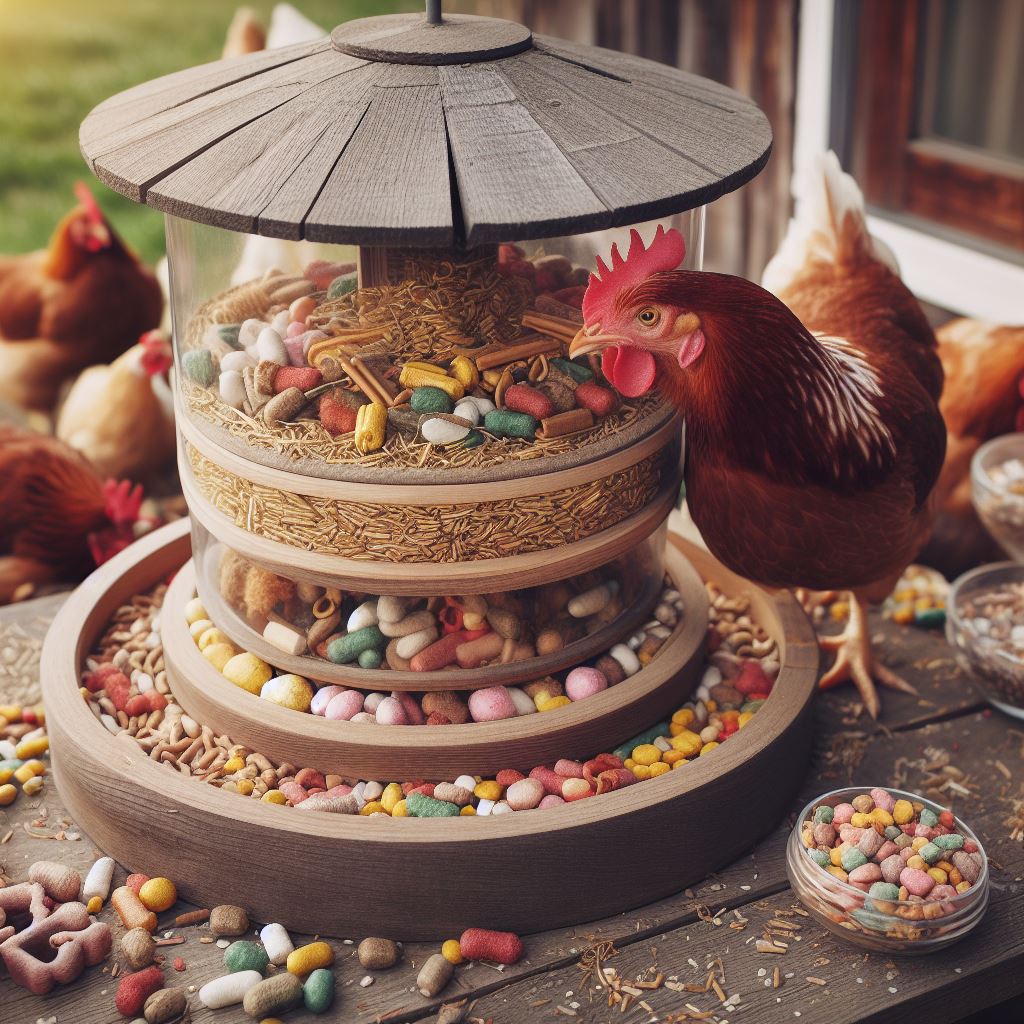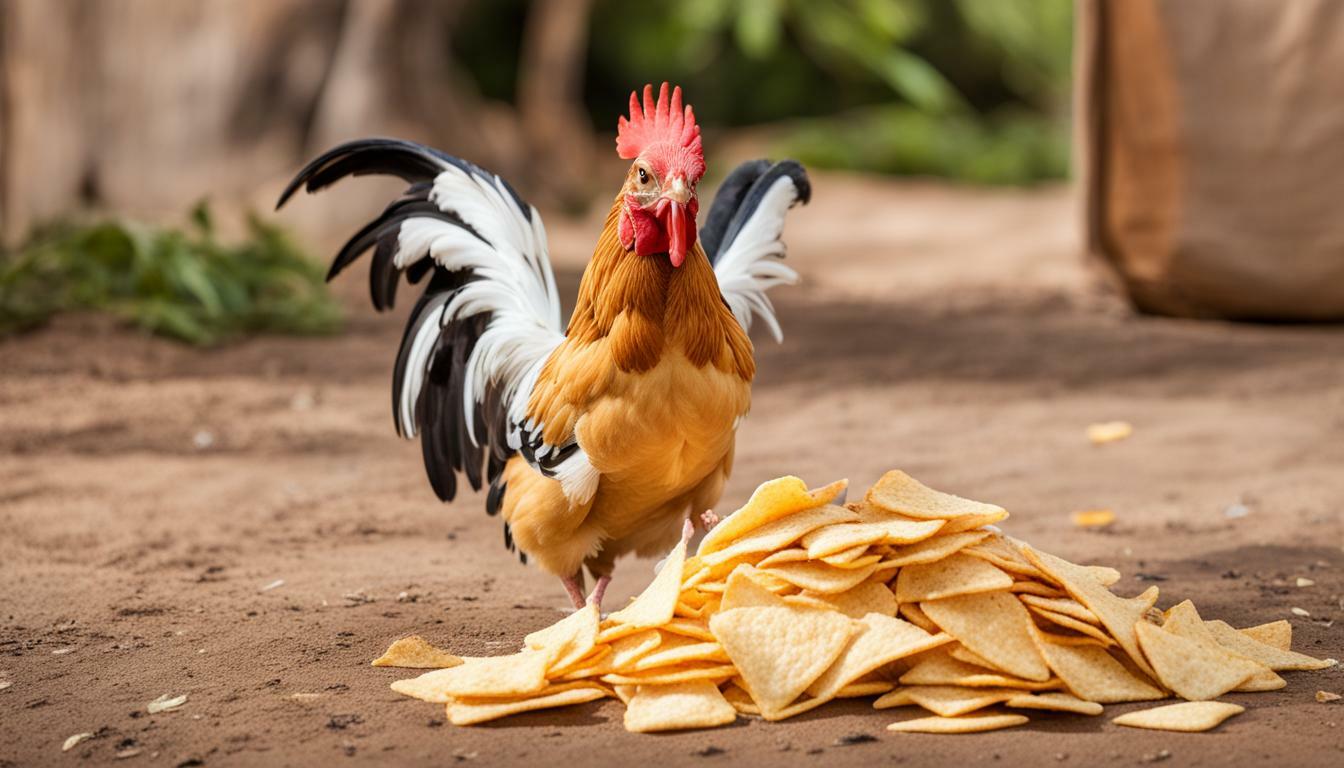Can Chickens Eat Peaches?

Table of content:
Yes, chickens can eat peaches in moderation. Peaches provide beneficial nutrients like vitamin C, vitamin A, potassium, and antioxidants. Peaches are high in sugar, so portions must be limited to avoid health issues.
Peaches make a sweet and tasty treat that many chicken owners wonder if they can share with their flock. While chickens can eat peaches, there are some important factors to consider before offering this fruit. Peaches contain high amounts of sugar, so it’s essential not to overfeed this treat.
Nutritional Value of Peaches for Chickens
Peaches contain a variety of vitamins, minerals, and antioxidants that can support a chicken’s health. Here are some of the top nutrients found in this fruit:
- Vitamin C – Peaches are high in vitamin C, an antioxidant that supports immune health and collagen production. This can help strengthen bones and tissues.
- Vitamin A – This vitamin is important for eye and skin health. The vitamin A in peaches comes from beta-carotene, which the body converts into a usable form of the nutrient.
- Potassium – This mineral helps with muscle function, fluid balance, and nerve transmission. Potassium supports egg production and overall health in chickens.
- Fiber – Peaches provide both soluble and insoluble fiber, which aids digestion and gut health in chickens.
In addition to vitamins and minerals, peaches contain beneficial plant compounds like chlorogenic acid, catechins, and quercetin. These act as antioxidants in the body to reduce inflammation and cell damage.
Health Benefits of Peaches for Chickens
Beyond their nutritional content, eating peaches offers a few specific health benefits for chickens:
1. Supports immune function
The vitamin C content in peaches may help boost immune health in chickens. Vitamin C supports the function and activity of various immune cells. It also acts as an antioxidant to reduce damage from free radicals that can impair immune defenses.
A stronger immune system makes chickens more resistant to common poultry diseases. It also helps them better handle environmental stressors that negatively impact health.
2. Encourages egg production
The vitamins, minerals, and antioxidants in peaches provide nutrients that directly promote egg production.
This fruit is a good source of vitamin A, which is crucial for reproductive health. Vitamin A helps regulate hormones and keeps the oviduct and ovaries functioning properly.
Potassium also supports egg production, while vitamins C and E improve eggshell quality. So giving chickens occasional peach treats may result in more abundant, high-quality eggs.
3. Supports digestion
Peaches contain both soluble and insoluble fiber, which promotes gut health and regularity. Soluble fiber forms a gel-like substance that moves waste smoothly through the digestive tract. Insoluble fiber adds bulk to stool and encourages regular bowel movements.
The nutrients and antioxidants in peaches also support the beneficial bacteria in chickens’ digestive systems. This improves their ability to fully digest and absorb nutrients from food.
Overall, peaches can aid digestion, prevent constipation, and support good gut health in chickens. A healthy digestive system means less illness and better growth.
Concerns With Feeding Peaches to Chickens
While peaches can be a healthy, natural treat for chickens, there are some potential downsides to be aware of:
High sugar content
The main risk when feeding peaches is their high sugar content. One medium peach contains around 13 grams of sugar.
Too much sugar can cause health issues in chickens, including:
- Digestive problems
- Weight gain
- Liver damage
- Diabetes
- Candida overgrowth
Chickens are also prone to selectively eating the sweetest, ripest parts of peaches. This can lead to them consuming excessive amounts of sugar.
Potential pesticides
Non-organic peaches may be coated in pesticide residues. While peach skins help block absorption of these chemicals, it’s still ideal to avoid conventionally grown peaches when feeding chickens.
Choking hazard
Peaches contain a large pit in the center that poses a choking risk, especially for juvenile chickens. You’ll need to slice peaches into small pieces and remove the pit before serving this fruit. Supervise chickens when providing peach treats.
Diarrhea
The high fiber and sugar in peaches may cause loose droppings or diarrhea if chickens eat too much at once. Start with very small portions and slowly increase to observe your flock’s reaction.
With proper precautions, these concerns can be avoided. Moderation is key when offering peaches as the occasional treat.
How Much Peach Can Chickens Eat?
Chickens should only eat peaches in moderation, no more than 1-2 times per week. Limit portion sizes to the following general recommendations:
For full-sized chickens:
- Chicks under 6 months: No more than 1-2 thin peach slices per chick, 1-2 times weekly
- Adult hens: 2-3 thin peach slices 1-2 times per week
- Roosters: 3-4 thin peach slices 1-2 times per week
For bantam chickens:
- Chicks under 6 months: A few shredded pieces of peach 1-2 times weekly
- Adult hens: 1-2 thin peach slices 1-2 times per week
- Roosters: 2-3 thin peach slices 1-2 times per week
Always introduce new treats slowly. Start with just a bite or two of peach. Monitor your flock’s droppings and health, increasing the portion if no issues arise.
If chickens become overweight or suffer digestion problems from peaches, stop serving them immediately. Never leave out a whole peach for chickens to peck at, as they can easily overeat.
Safest Ways to Prepare and Serve Peaches
For safety and optimal nutrition, follow these tips when serving peaches:
- Wash thoroughly to remove dirt, chemicals, and bacteria.
- Remove skin and pit – these parts can be difficult for chickens to digest.
- Cut into thin slices or small pieces for easier eating.
- Mash ripe peaches into a puree for chicks.
- Mix with grains, chicken feed, leafy greens, or yogurt for balanced nutrition.
- Refrigerate cut peaches if not serving immediately.
- Provide ample fresh water to help dilute the sugar content.
- Avoid canned peaches packed in sugary syrups.
- Supervise your flock during “peach time” to ensure proper portion sizes.
Preparing peaches properly reduces risks while allowing chickens to enjoy the nutritional benefits.
Frequently Asked Questions About Chickens Eating Peaches
Can baby chicks eat peaches?
Very young chicks should not eat peaches, as their digestive systems cannot handle the high sugar content. Wait until chicks are at least 16-20 weeks old before offering small portions of mashed peach as an occasional treat.
What about the peach peel and pit?
It’s best to remove the peel and pit before serving peaches to chickens. The skin is very fibrous and can be difficult for chickens to digest. The pit also poses a serious choking hazard. Slice peaches into small pieces and discard the peel and pit.
How do I know if I’m giving too many peaches?
Diarrhea, loose droppings, increased obesity, or selective eating habits are signs you should reduce or eliminate peaches. Follow suggested portion sizes and limit treats to 1-2 times per week.
Can chickens eat peaches daily or all day?
No, chickens should not have unlimited access to peaches. The high sugar content makes peaches unsuitable as a daily treat. Give portions of 2-4 thin slices just 1-2 times per week for optimal health.
Will peaches help my chickens lay more eggs?
In moderation, peaches can provide useful nutrients to support egg production. But overdoing it on this sugary fruit could lead to health issues that impair laying. Give treats sparingly along with a balanced main diet.
Conclusion
Chickens can occasionally eat small amounts of peaches as part of a balanced diet and lifestyle. These fruits provide useful vitamins, minerals, and antioxidants that support chicken health. Peaches may promote immune function, egg production, and digestion when fed properly as an infrequent treat.
However, moderation is extremely important, due to the high sugar content of peaches. Chickens should only receive 1-2 servings of a few thin slices 1-2 times weekly. Never allow free access to peaches.
Monitor your flock’s health carefully when introducing new treats. Adjust or discontinue peaches if any digestive issues arise. Always feed peaches without the peel or pit and supervise your chickens during snack time.
With smart portion control, peaches make a nutritious and enjoyable supplement to a chicken’s normal feed. In limited amounts, this sweet fruit can be a safe, natural way to provide your flock with beneficial nutrients without going overboard on sugar.
Welcome. I’m Adreena Shanum, the proud owner of this website, and I am incredibly passionate about animals, especially poultry. I founded adreenapets.com as a labor of love, stemming from my desire to share my knowledge and experiences with poultry enthusiasts worldwide.




